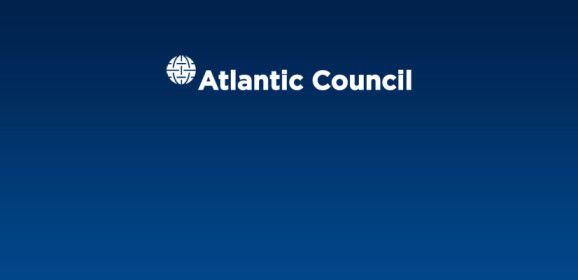Section: Atlantic Council (USA)
NATO’s Trump Card
As strange as it seems, both US President Barack Obama and Republican presidential nominee Donald Trump seem to agree on one thing: European allies don’t spend enough on defense and they need to seriously step up. How they both frame this message is where Obama the statesman and Trump the salesman differ.Since Russia’s annexation of...
Ukraine’s Deadly Profession: Three Journalists Attacked in July
On July 20, investigative journalist Pavel Sheremet was assassinated in Kyiv. Sheremet hosted a morning show at Radio Vesti and was a top reporter at Ukrainska Pravda. A crusading journalist and native of Minsk, Belarus, he had already been expelled from both Belarus and Russia. He was killed by a car bomb.It would be easy to dismiss...
Intrigue, Outrage, and Relatively Free Elections in Ukraine
On the eve of Ukraine’s special elections on July 17, Nadiya Savchenko walked into the crowded Stansiya Lughansk district commission offices in eastern Ukraine. She was there to campaign for Fatherland’s Iryna Verihina, who had been Luhansk’s governor for about six months before being replaced. Catching sight of Serhiy Shakhov,...
Established Political Parties Set to Benefit from Ukraine’s New Reform
This month, Ukraine introduced state financing of political parties in the hopes that it will create a more transparent, equal, and democratic playing field for politicians and their organizations. But the process will not be as beneficial to Ukraine’s reform efforts as it could have been.In October 2015, the Ukrainian parliament adopted...
How the GOP Abandons Ukraine
When asked recently why he turned up in Moscow last December to help celebrate the tenth anniversary of RT, Michael Flynn rambled about wanting to deliver stern lectures to the Russians. The retired US Lt. Gen.—who now serves as foreign policy adviser to Republican nominee Donald J. Trump—was seated at a gala dinner next to Russian President...
Remembering the Former Soviet Union’s Top Investigative Journalist
Car Bomb Kills Prominent Journalist Pavel Sheremet in Kyiv It is hard to believe that Pavel Sheremet is dead because he was so full of life. He was an exuberant man who loved life and everything in it. A dinner with Pavel was always a wonderful and lively affair, and he enjoyed the food and wine that went with the meal as well.Yet, it is easy to...
How to Avoid Becoming Ukraine’s Most Unpopular Politician
Ukraine is a relatively young country. Its political traditions are still developing and its electorate can still be easily beguiled by every new leader who promises to bring the nation out of the economic misery it was immersed in after the collapse of the Soviet Union. Ukraine is still desperately poor, ranked among the poorest countries in...
Tymoshenko and Kolomoyskyi Score Wins in Ukraine’s Special Elections
Populism is on the rise in Ukraine, so it’s little surprise that Fatherland party leader Yulia Tymoshenko and oligarch Ihor Kolomoyskyi gained the most in Ukraine’s special parliamentary elections on July 17. Elections were held in seven districts across the country. Fatherland candidates won in Kherson and Poltava, while...
Ukraine Needs to Abandon its Soviet Thinking Once and for All
Ukraine’s reform efforts continue to sputter on without any transformative results more than two years after former President Viktor Yanukovych fled to Moscow. The economy’s basic problems have not yet been addressed. It is still bogged down in its Soviet past, with populist forces making illusory promises that appeal to many...
How Ukraine Can Win the Information War in a Fact Free World
What media outlets do you trust? From the Brexit referendum and the US presidential race to Russia’s information war on Ukraine, it is becoming increasingly clear that we now live in a fact-free world where emotions reign supreme and truth is in the eye of the beholder.This trend first became apparent around the time of the 2003 Iraq war....



